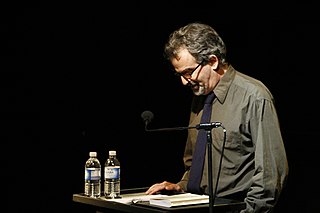A Quote by Lily Collins
I did a film recently in the Republic of Georgia [upcoming 'Halo of Stars'] which was based on a long poem written by the director. We found that all these words were beautiful as a poem, but for humans it was more about the emotion or a look than just saying what was there.
Related Quotes
I just think that the world of workshops - I've written a poem that is a parody of workshop talk, I've written a poem that is a kind of parody of a garrulous poet at a poetry reading who spends an inordinate amount of time explaining the poem before reading it, I've written a number of satirical poems about other poets.
I keep feeling that there isn't one poem being written by any one of us - or a book or anything like that. The whole life of us writers, the whole product I guess I mean, is the one long poem - a community effort if you will. It's all the same poem. It doesn't belong to any one writer - it's God's poem perhaps. Or God's people's poem.
If you're angry, you don't have to write a poem dealing with the cause of your anger. But it needs to be an angry poem. So go ahead... write one. I know you're at least a little bit angry with me. And when you're done with your poem, decipher it as if you'd just found it printed in a textbook and know absolutely nothing about its author. The results can be amazing...and scary. But it's always cheaper than a therapist.
The religion of the short poem, in every age and in every literature, has a single commandment: Less is always more. The short poem rejects preamble and summary. It's about all and everything, the metaphysics of a few words surrounded by much silence. …The short poem is a match flaring up in a dark universe.




































